
BUSINESS: Volvo opens tech hub in Singapore
INTERNATIONAL: Thailand and EFTA Sign First-Ever Free Trade Agreement
COMMUNITY: Finnish expats can vote early in 2025 regional elections



BUSINESS: Volvo opens tech hub in Singapore
INTERNATIONAL: Thailand and EFTA Sign First-Ever Free Trade Agreement
COMMUNITY: Finnish expats can vote early in 2025 regional elections

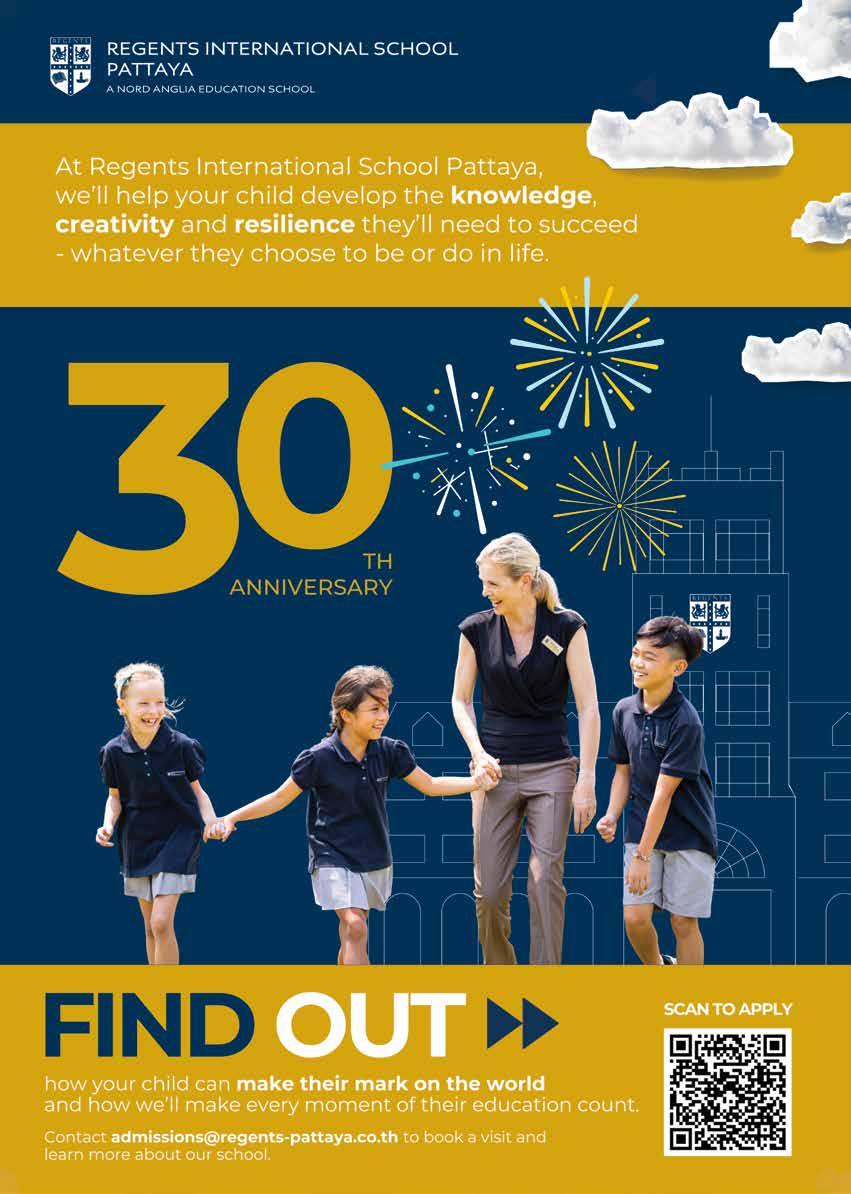










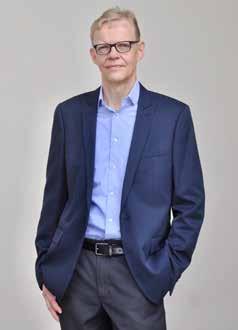
Aalto University Executive Education’s solutions for business challenges
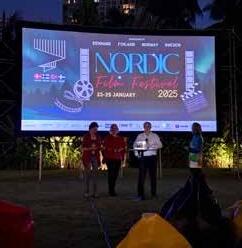
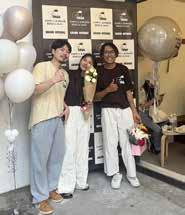
Fimue Coffee & Music Social Club brings Nordic vintage charm to Chiang Mai

9 Swedish Consulate in Hua Hin Temporarily Closed
16 Danish Crown plans to sell Chinese facility
31 Sarawak Tourism Board participated at MATKA 2025 in Helsinki
35 Royal Thai Embassy in Helsinki offer marriage registration for all couples
40 Finland targets Philippines for talent attraction
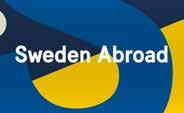

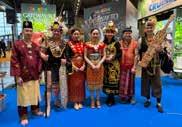
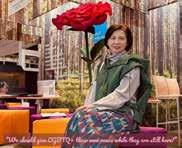
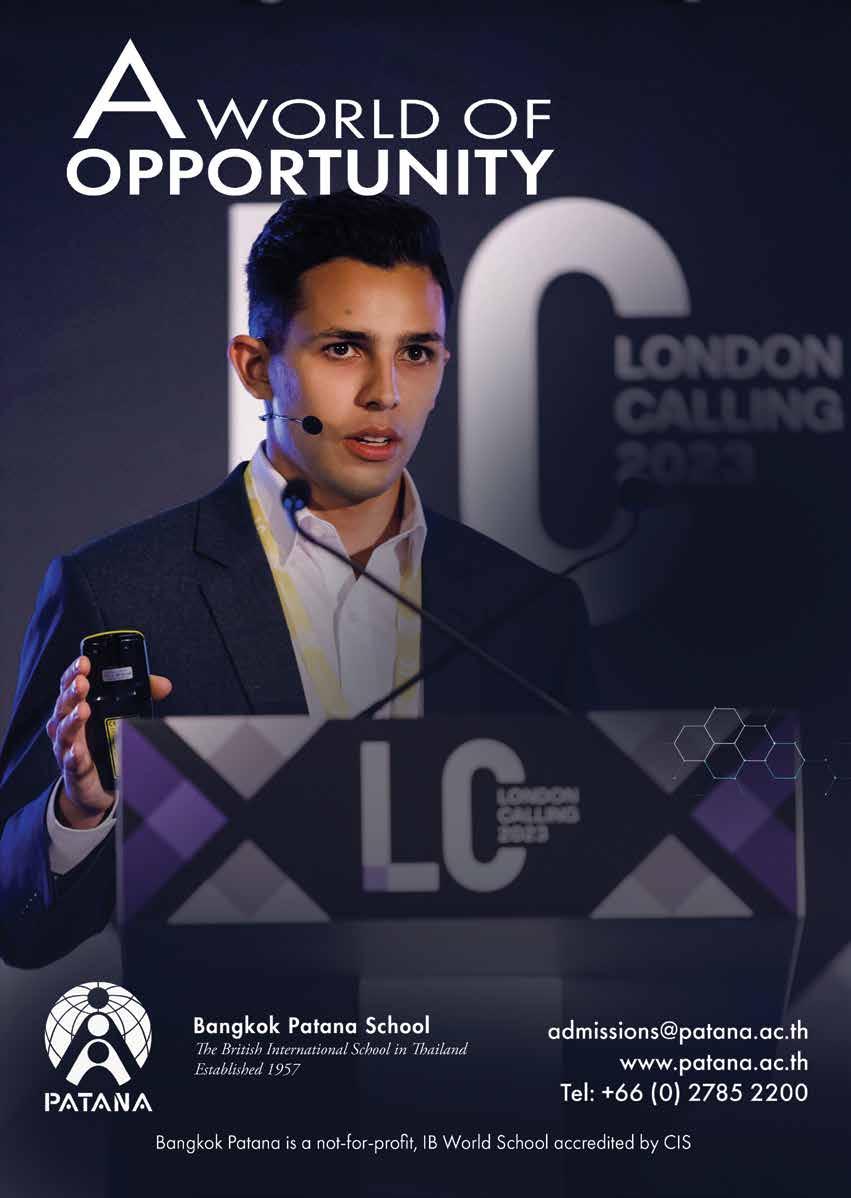


The recent Nordic Film Festival in Bangkok highlighted how Scandinavian culture has a mission in Southeast Asia. These films introduced audiences to Nordic storytelling, values, and perspectives – an example of how diplomacy extends beyond politics and economics.
The films were the latest example of how the Nordic countries have long advocated our values of equality, democracy, transparency, and sustainability, shaping business practices and urban planning in the region.
The Fimue Coffee Music Social Club in Chiang Mai is also a good example of how Scandinavian minimalism and vintage charm blend naturally with Southeast Asian hospitality. The owners were inspired by the broader Nordic brand in creating their venue.
While our Nordic soft power continues to make an impression, it faces competition from the overwhelming influence of Chinese, American, and Korean cultural exports. However, our values still appeal to Southeast Asia’s educated and influential elites, who see us as models of sustainable governance and ethical business practices.
Our countries consistently rank among the world’s most transparent and sustainable nations. These values remain attractive, particularly in business, governance, and academia, where forward-thinking individuals seek ethical governance and sustainable development models.
Our design, literature, and lifestyle brands remain visible in Southeast Asia. Scandinavian design principles – functionality, simplicity, and sustainability – have influenced interior design and urban development in cities like Bangkok, Singapore, and Ho Chi Minh City. The works of authors such as Astrid Lindgren and contemporary Nordic crime novelists have found a growing readership. Sustainable and ethical fashion brands from our region are also gaining traction.
Education and governance are other areas where our soft power is present. Nordic universities attract Southeast Asian students, particularly in sustainability, technology, and social sciences. Public sector collaborations have introduced Nordic-inspired urban planning and green energy solutions. Our workplace culture has also influenced multinational companies in the region.
Future collaborations could strengthen ties through film co-productions, cultural festivals, and sustainabilityfocused partnerships. Our institutions can also work more closely with local governments and businesses to implement long-term projects that reflect shared priorities.
Our countries may be small, but we have a key role in continuing our soft power influence in Southeast Asia. We must continue sharing our ideas, creativity, and forward-thinking governance models. We must keep serving as alternative role models.
Our soft power diplomacy is not just about business – it’s about contributing to the future of Asian societies by offering our values, ideas, and principles. Becoming more visible is the first step, and initiatives like the Nordic Film Festival are key milestones in this effort.
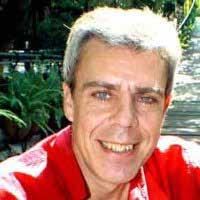
ScandAsia is a printed magazine and online media covering the people and businesses of Denmark, Sweden, Norway, Finland living and working in China, Hong Kong, Thailand, Malaysia, Singapore, Indonesia, Philippines, Vietnam, Cambodia, Laos and Myanmar.
Who should subscribe:
ScandAsia subscribers are typically Nordic expats and companies from the Nordic countries living in and active in Asia. Another group of subscribers are Nordic people living in the Nordic countries who subscribe to ScandAsia for personal or business reasons. We also have many Asian subscribers, who for a wide range of reasons are following the activities of the Nordic expats and companies via a subscription to ScandAsia.
The ScandAsia magazine is produced every month and distributed to all print version subscribers via postal services and to all eMagazine subscribers via email. Subscribing to the eMagazine is FREE - simply sign up on the ScandAsia.com website.
Become a ScandAsia user/ get free digital ScandAsia magazine or paid subscription via www.scandasia.com!
Publisher : Scandinavian Publishing Co., Ltd. 211 Prasert Manukitch 29 Prasert Manukitch Road Bangkok 10230, Thailand
Tel. +66 2 943 7166-8
Fax: +66 2 943 7169
E-mail: news@scandasia.com
Editor-in-Chief : Gregers A.W. Møller gregers@scandasia.com
Advertising : Finn Balslev finn@scandmedia.com
MB: +66 81 866 2577
Graphic Designer : Peerapol Meesuwan Peerapol@scandmedia.com
Production Manager: Sopida Yatprom
Printing : Win-Win Digital Printing Co., Ltd.

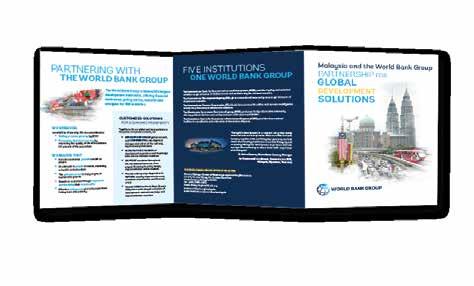
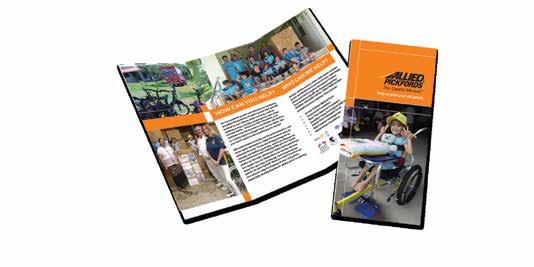


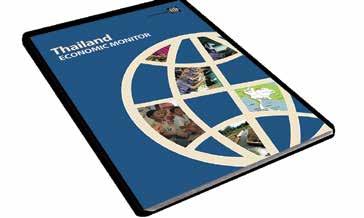




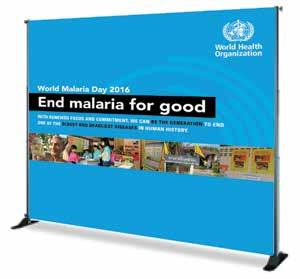

Danish municipalities continue to purchase Chinese electric vehicles (EVs), such as the popular BYD Dolphin, despite Prime Minister Mette Frederiksen’s warnings about dependency on China and concerns from the Data Protection Agency. Frederiksen stressed the importance of reducing Europe’s dependency on Chinese products in her New Years speech, yet municipal fleets continue to grow with these cars.
Syddjurs and Holstebro mu -
On January 1, 2025, Finland and Laos celebrated the 50th anniversary of their diplomatic relations, highlighting decades of cooperation and evolving partnerships.
Since establishing ties in 1975, both nations have collaborated on development initiatives, particularly in sustainable natural resource management, rural development, and renewable energy. While bilateral development projects concluded in 2019, Finland continues to support
nicipalities lead the charge, having added significant numbers of Chinese EVs to their fleets. This increase aligns with Denmark’s 2020 green transition agreement, which encourages adopting environmentally friendly vehicles. In some areas, electric cars account for nearly 60% of new municipal vehicle purchases. Municipal leaders cite cost savings and environmental benefits as key reasons for choosing Chinese EVs. However, the Data Protection Agency highlights serious data secu-
rity risks. New EVs collect and transmit extensive data, potentially raising privacy concerns. Adjunct professor Tanja Kammersgaard Christensen points out that municipalities must manage this data carefully to comply with regulations.
BYD, a leading Chinese EV manufacturer, assures compliance with strict EU data protection laws. The company maintains that all data remains on EU servers, aiming to quell security fears. Despite these assurances, debates over data security and geopolitical tensions persist. Municipalities argue that they follow established procurement rules, which currently prevent excluding Chinese suppliers based solely on nationality. However, authorities call for a review of procurement policies to better align with national security interests. The recent increase in Chinese EV purchases has sparked public debate and concern over dependence on foreign technology.
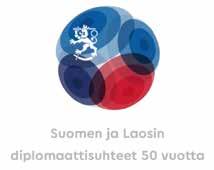
Laos through organizations like Plan International and WWF, as well as the IKI initiative, which addresses climate challenges with meteorological institutes from Finland, Laos, and Vietnam.
Economic cooperation remains strong, with Finnfund financing sustainable businesses in Laos, including Burapha’s plywood factory. Trade between the two countries continues to grow, with Finnish exports to Laos valued at €2.5 million in 2023 and imports reaching €2.7 million.
This milestone reflects the enduring partnership between Finland and Laos, built on shared goals for sustainable development and economic growth.
As of January 15, 2025, the Consulate of Sweden in Hua Hin is temporarily closed following the passing of Honorary Consul Vajaravudh Sukseree. Until a new honorary consul is appointed, the consulate will be unable to provide consular services.
During this period, Swedish citizens in need of assistance should contact the Embassy of Sweden in Bangkok. The embassy will:
• Issue new passports. Those notified to collect their passports in Hua Hin can still do so.
• Handle all inquiries regarding certificates.
• Assist with other consular services upon request.
The embassy extends its con-
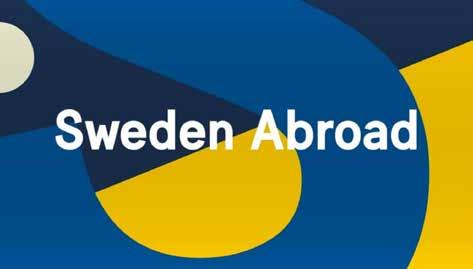
dolences on the passing of Honorary Consul Sukseree and appreciates the community’s understanding during this transition.
For further information, please contact the Embassy of Sweden in Bangkok.
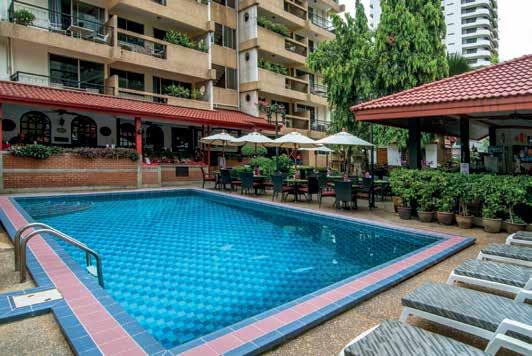
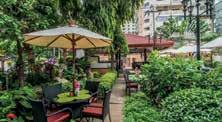

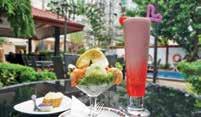

As of January 1, 2025, Laos has officially reverted to its standard visa regulations, ending the temporary visa exemptions introduced during Visit Laos Year 2024. Tourists from Denmark, Norway, Finland, and Sweden must now follow pre-2024 rules to enter the country.
Under last year’s special policy, Nordic travelers were allowed visafree entry for up to 15 days, a move aimed at boosting tourism. This exemption expired on December 31, 2024, along with similar benefits for travelers from other countries.
The current visa options include 30-day visas on arrival and embassy-issued visas. The Lao government is reviewing the outcomes of the 2024 policy and exploring future strategies to attract international visitors.
Travelers planning to visit Laos in 2025 are encouraged to check the latest visa requirements before their trip.

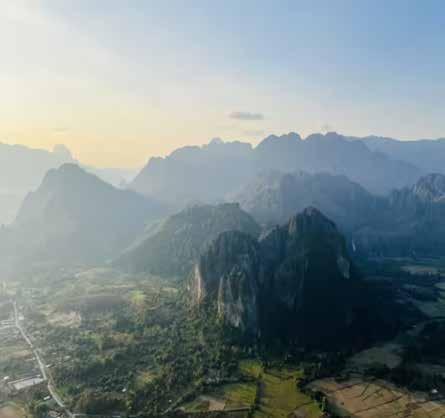
On January 6, 2025, the EU, along with the U.S., Australia, Canada, New Zealand, Norway, South Korea, Switzerland, Timor-Leste, and the U.K., issued a joint statement expressing deep concern over Myanmar’s deteriorating human rights and humanitarian situation.
The statement condemned escalating violence, repression, and rights abuses by the military regime, including forced child recruitment, attacks on ethnic and religious minorities, and indiscriminate airstrikes causing civilian casualties. Reports of sexual violence and assaults on humanitarian workers further underscored the crisis.
The worsening conflict in Rakhine State, particularly its impact on the Rohingya and other com-
munities, was highlighted as a major concern. The statement called for an immediate end to hostilities, respect for human rights laws, and unimpeded humanitarian aid access to assist those in need.
The EU and its allies reaffirmed their support for UN resolution 2669 (2022) and ASEAN’s diplomatic efforts to address the crisis. They urged all parties to engage in dialogue and work toward restoring peace, stability, and inclusive democracy in Myanmar.
Neste, a Finnish renewable fuels producer, has achieved a milestone by delivering its MY Renewable Diesel to the marine sector in Singapore. The delivery was conducted in partnership with KPI OceanConnect and Global Energy, marking a first for the Asia-Pacific region.
Made from 100% renewable materials, MY Renewable Diesel can replace fossil diesel in all diesel engines without modifications. Neste claims it reduces greenhouse gas (GHG) emissions by up to 90% over its lifecycle compared to traditional diesel, depending on regional regulations and raw material sources.
“This marks a significant milestone for making the marine sector more sustainable,” said Ee Pin Lee, Neste’s APAC head of commercial renewable products.
Jesper Sørensen of KPI OceanConnect emphasized the importance of partnerships in advancing decarbonization, while Chow Munee of Global Energy highlighted the seamless delivery via a Maple barge.
The collaboration demonstrates the marine industry’s growing commitment to reducing its environmental footprint.
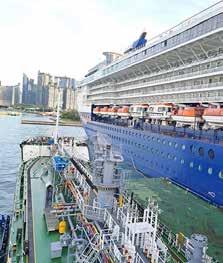

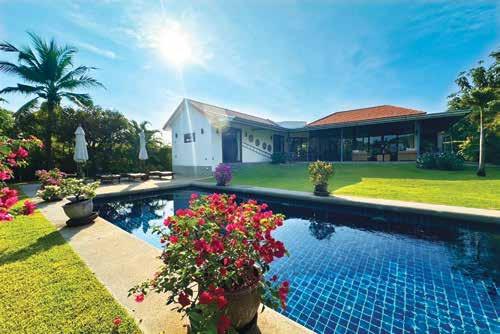

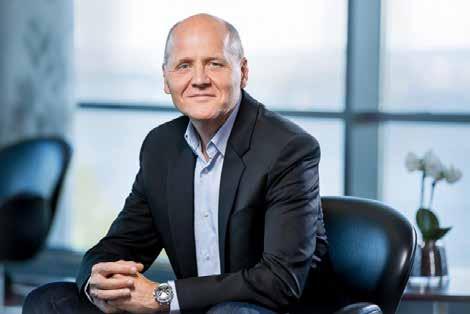
Sigve Brekke will return to Thailand’s telecommunications sector as CEO of CP Group’s Telecommunications and Digital
Business Group starting March 1, 2025.
Recruited by CP Group CEO Suphachai Chearavanont, Brekke
will oversee investments in telecommunications, digital technologies, and financial services, focusing on advancing Thailand’s digital economy.
Brekke previously served as CEO of dtac and held key roles at Telenor Group, bringing years of global experience in digital technology and telecommunications. He also contributed to industry development as a GSMA Board member from 2017 to 2024.
Known for driving innovation and fostering partnerships, Brekke is expected to enhance CP Group’s digital strategies, including infrastructure development, innovation promotion, and skill-building.
This appointment reflects CP Group’s ambition to position itself as a global leader in technology and strengthen digital transformation efforts across Southeast Asia.
Danish companies are using the China International Import Expo (CIIE) to access China’s massive market. At a promotional meeting in Copenhagen, participants highlighted the event’s importance for global trade partnerships.
Ole Hammer from Lego Group praised the expo as a top platform for collaboration. Lego, a regular participant since the expo began, has engaged with over 200,000 visitors and grown to 450 stores in 120 Chinese cities.

Smaller businesses, like Inuit Seal Oil, are also benefiting. Founder Bent Mortensen sees the expo as a
way to enter the Chinese market, describing it as a “huge opportunity.”
Danish Industry (DI) has supported Denmark’s presence at the CIIE since 2018. Peter Thagesen from DI plans to expand the Danish pavilion for future events.
Chinese officials encouraged Danish companies to leverage the expo and highlighted initiatives like a 30-day visa-free policy to simplify business travel.
Tetra Pak has introduced its Direct Ultra-High Temperature (UHT) technology to enhance the processing and packaging of coconut products, preserving their natural flavor and nutrients. This innovation meets the growing global demand for coconut-based beverages.
Coconut water, milk, and cream have gained popularity for their nutritional benefits, but processing is challenging due to their perishable nature. Tetra Pak’s UHT technology rapidly heats and cools coconut products, extending shelf life up to 12 months without preservatives or refrigeration.
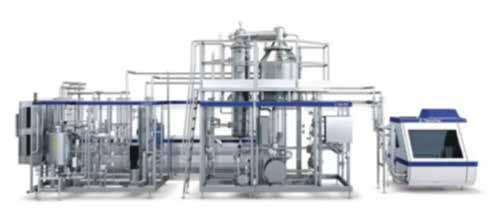
At the Coconext 2024 conference, Tetra Pak highlighted key advantages of its technology, including nutrient preservation, energy efficiency, and integrated monitoring systems. It also introduced Tetra PlantMaster, an automation solution for optimizing food production.
Tetra Pak continues to invest in sustainable processing solutions, supporting Vietnamese coconut producers through innovations like the Bloom Centre in Binh Duong, helping businesses develop highquality coconut-based products for global markets.

Auto giant Volvo has launched a new tech hub in Singapore to support its goal of becoming a fully electric carmaker and a leader in technology. The 9,423-square-foot facility, opened on January 22, includes a research and development lab and office space for engineers. Currently employing 15 people, the hub is expected to expand.
Located on Kallang Avenue, the hub focuses on robotics, electronics engineering, power electronics, artificial intelligence (AI), and data analytics to enhance Volvo’s in-house technology and software development. “The Singapore hub will play a key role in our deep tech and advanced engineering development,” said Dr. Yvonne Tan, head of the facility.
Unlike Volvo’s software engineering center in Krakow, Poland, and IT support hub in India, the Singapore site specializes in advanced technology development. Dr. Tan highlighted the country’s strong robotics talent pool, supported by local startups and institutions.
During the opening ceremony, Cindy Koh, executive vice-president of the Economic Development Board, acknowledged global challenges in the automotive sector, including the recent slowdown in electric vehicle (EV) adoption.
Volvo’s sales in Singapore grew 38% from 2023 to 2024, with EVs making up 58% of total sales. Singapore aims to phase out internal combustion engine vehicles by 2040, offering incentives and expanding charging infrastructure to support EV growth.
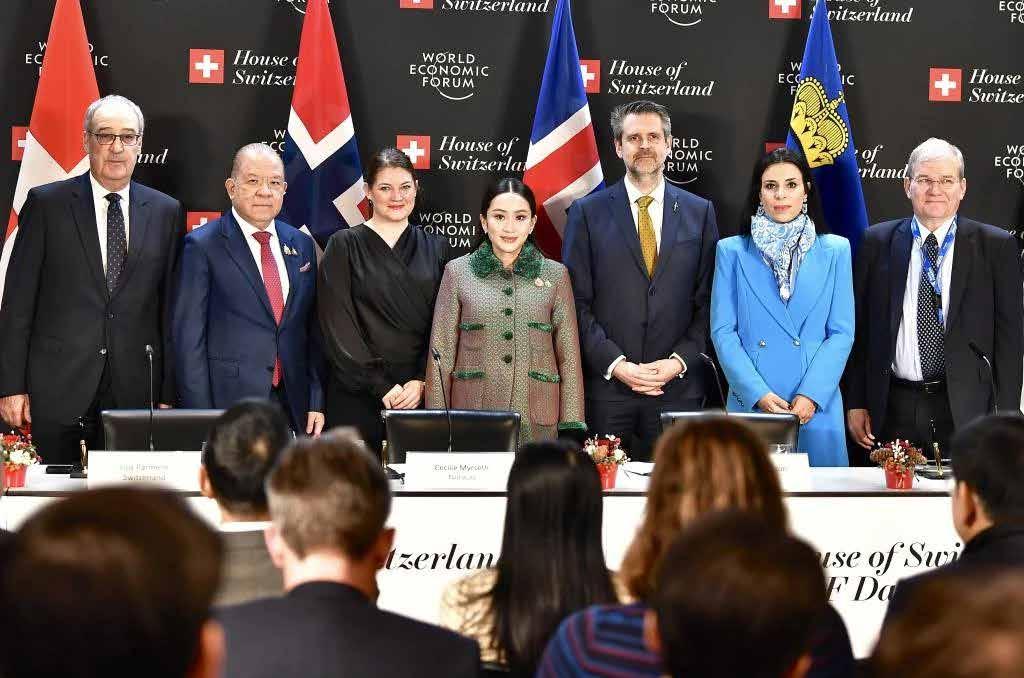
Thailand has officially signed a historic Free Trade Agreement (FTA) with the European Free Trade Association (EFTA), comprising Norway, Iceland, Switzerland and Liechtenstein. The agreement, signed on January 23 during the 2025 World Economic Forum in Davos, marks Thailand’s first-ever FTA with European nations. It represents a significant step in enhancing Thailand’s global trade prospects while also offering substantial benefits to Norway and the other EFTA member states.
The signing ceremony was attended by Thai Prime Minister Paetongtarn Shinawatra, Commerce Minister Phichai Naripthaphan, Swiss Economics Minister Guy Parmelin, Norwegian Trade and Industry Minister Cecilie Myrseth, and other
high-ranking officials. For both Thailand and Norway, the agreement is expected to open up new opportunities and boost bilateral trade, which has seen robust growth in recent years.
Norwegian Trade and Industry Minister Cecilie Myrseth hailed the agreement as a breakthrough for Norwegian businesses.
“This is great news for Norwegian industries. Almost all goods we export to Thailand will now enjoy zero tariffs,” she said. Myrseth emphasized that the FTA would strengthen the competitiveness of Norwegian goods and services in one of Southeast Asia’s fastestgrowing economies.
Norway views Thailand as a key trading partner in the region. According to Thailand’s import statistics, Norway exported NOK 5.6 billion worth of goods to Thailand in 2023. Under the new FTA, 83% of Norwegian exports to Thailand will be tariff-free upon implementation, rising to 99.8% over the next 15 years.
“This is an excellent result for Norway! Over half of our exports to Thailand consist of seafood, and the agreement provides better terms than those enjoyed by our main competitors in the Thai market. This will be a major advantage for Norwegian exporters,” noted Fisheries and Oceans Minister Marianne Sivertsen Næss.
The agreement also ensures increased predictability and improved
market access for Norwegian businesses in Thailand. Myrseth added, “This FTA joins a series of important trade agreements we’ve secured this year. Such agreements are vital for a small, open economy like Norway, especially at a time when many countries are building trade barriers.”
From Thailand’s perspective, the FTA signals the country’s re-emergence as a global trade leader. Commerce Minister Phichai Naripthaphan expressed confidence that the agreement would attract increased investment and position Thailand as a competitive trading partner on the global stage.
In 2024, total trade between Thailand and the EFTA nations amounted to USD 11.79 billion, accounting for 1.94% of Thailand’s global trade and representing a 19.22% increase from the previ -
ous year. Key Thai exports to EFTA countries include gems, jewelry, steel products, seafood, and cosmetics. Norway, meanwhile, primarily exports seafood, fertilizer, pulp, and steel products to Thailand.
The Thai Commerce Ministry anticipates that the agreement will boost foreign investment, particularly in emerging sectors like data centers and artificial intelligence, while strengthening Thailand’s position in global trade networks.
The FTA includes a robust chapter on trade and sustainable development, adhering closely to EFTA’s most ambitious sustainability commitments to date in a free trade agreement with an Asian country. This reflects a growing emphasis on addressing social and environmental concerns while promoting economic growth.
A sustainability impact assess-
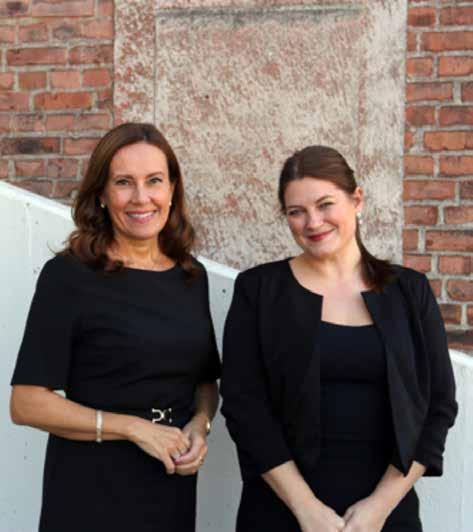
ment conducted by the London School of Economics (LSE) Trade Policy Hub highlighted that the agreement would foster economic growth and increase trade and investments in both Thailand and EFTA nations. However, it also identified potential challenges related to climate, labor rights, and environmental sustainability.
While the report projects a slight increase in CO2 emissions in both EFTA countries and Thailand due to increased trade, it suggests that global emissions may decrease slightly as Thai imports from EFTA replace higher-emission goods from other countries. The report emphasizes the importance of robust provisions on sustainability and monitoring mechanisms to ensure long-term benefits for all parties involved.
For Norway and its EFTA partners, the FTA with Thailand represents a significant advancement in strengthening ties with a key Southeast Asian economy. It underscores EFTA’s commitment to pursuing open trade and sustainable development in an increasingly protectionist global environment.
In the coming months, the agreement will undergo ratification processes in Thailand, including public hearings and parliamentary approval. Once implemented, it is expected to dramatically enhance trade relations between Thailand and EFTA countries, offering new opportunities for businesses on both sides.
As Phichai remarked, “This agreement not only opens doors for Thailand but also demonstrates our readiness to engage with the global community at a higher standard.” For Norway, it’s a step toward securing better trade terms and ensuring its industries remain competitive in a dynamic global market. The Thailand-EFTA FTA promises to be a win-win, strengthening economic ties and creating sustainable growth for all involved.
AstraZeneca (NASDAQ: AZN) has seen its stock drop 15% over six months due to a growing Chinese regulatory investigation into alleged illegal drug imports, data breaches, and health insurance fraud.
In response, law firm Hagens Berman is investigating the matter and encouraging investors in AstraZeneca’s American Depositary Shares (ADS) to file claims for potential losses. The class period covers February 23, 2022, to December 17, 2024.
The probe centers on allegations that AstraZeneca employees illegally imported cancer drugs, including Enhertu and Imjudo, from Hong Kong to China. Investor con-

cerns deepened after the arrest of Leon Wang, AstraZeneca’s Executive VP for International and China operations, and internal forecasts predicting declining sales in the
Chinese market.
A class action lawsuit in the U.S. District Court for Central California accuses AstraZeneca of misleading investors about its regulatory risks in China. Stock prices fell 3% when Wang’s cooperation with the investigation was revealed, followed by a 7% decline after reports implicated other executives in compliance issues.
Hagens Berman continues its investigation, with attorney Reed Kathrein stating that if the allegations prove true, AstraZeneca may have misled investors about its exposure in China. Whistleblowers may also seek SEC rewards for information leading to successful recoveries.
Danish Crown, the major pork processing company, announced its decision to sell its facility in Pinghu, China. A company spokesperson confirmed the news, stating that the factory “didn’t develop in line with our expectations.”
This move comes under the leadership of new CEO Niels Duedahl, who took the reins last August. Duedahl, who succeeded Jais Valeur following his early departure, emphasized the company’s strategic overhaul. Chairman Asger Krogsgaard noted the business is entering a “new strategy period” and undergoing a “significant transition.”
In recent weeks, Danish Crown also decided to stop selling retailpacked fresh meat in Germany. This

decision aims to enhance profitability and will result in the winding down of the Oldenburg Convenience division by the end of February.
The company’s 2023/2024 report highlighted a year of “significant market and geopolitical changes” impacting operations. Moving forward to fiscal year 2024/25, Danish Crown expects a continued decrease in slaughter animal production across Europe.
The report indicated,“The pace of the decline slowed in 2023/24, but the downward trend remains challenging.” Factors contributing to this decline include reduced pork demand in China, the outbreak of African Swine Fever (ASF) in Germany, and rising raw material prices due to the war in Ukraine.
Danish Crown reported stagnation in revenue for 2024 at DKr67.8 billion ($9.4 billion), showing only a slight increase from DKr67.6 billion in 2023. However, net profit fell by 28.5%, from DKr1.4 billion in 2023 to DKr1 billion in 2024.
Despite these challenges, Danish Crown continues to operate facilities across Denmark, Sweden, Germany, the Netherlands, Poland, the UK, and France.
The vibrant purple and turquoise vessel, Northern Pathfinder, is ready for its maiden voyage to Norway. It docked at Tanjong Pagar Terminal in Singapore on January 16 and 17.The ship is central to the world’s first cross-border carbon capture and storage project, Northern Lights.
At 130 meters long, the Northern Pathfinder has two tanks capable of holding 8,000 tonnes of liquid CO2. Built in China, it is headed to Norway, where a storage facility will receive the CO2 for eventual transfer to a vault beneath the North Sea.
Powered by liquefied natural gas, the ship was recently refueled in Singapore. It is part of a joint initiative by Shell, TotalEnergies, and Equinor to establish a commercial carbon capture and storage market in Europe.
On January 17, media and in-

dustry representatives toured the vessel to learn about its capabilities. The Northern Pathfinder is one of four ships in Shell’s fleet designed to transport captured CO2. Its sister ship, Northern Pioneer, departed China for Norway in November 2024.
Zharin Zhafrael Mohd, Shell’s general manager of CCS for the Asia-Pacific, highlighted shipping’s vital role in the region’s CCS goals:
“The Asia-Pacific is largely an archipelago, making shipping crucial for carbon capture and storage.”
The consortium aims to store 2,500 kilotonnes of CO2 annually by 2030, using geological formations in Brunei, Malaysia, and Australia. With rising carbon taxes and growing decarbonization efforts, Singapore is actively partnering with regional allies to advance carbon capture initiatives.

PD House actively seeks to revolutionize home building in Thailand by introducing the innovative Danish “Bubble Deck” technology. This initiative not only marks the company’s first use of Bubble Deck for constructing resi-
dential homes but also underscores its commitment to environmentally friendly practices.
Bubble Deck reduces concrete usage, enhances insulation, and eliminates beams, allowing for higher ceilings and more efficient structures. Previously used in large buildings, it will now be applied to homes, making construction lighter, stronger, and more eco-friendly. The company plans to officially introduce this groundbreaking technology by Q1 2025.
Amidst economic challenges such as declining consumer pur-
chasing power and increasing competition, PD House is adapting by improving communication with target consumers. The company has revamped its website, expanded its social media presence, and integrated an Enterprise Resource Planning (ERP) system to optimize project management, accounting, and cost analysis while reducing paper use.
Assistant EVP Thiraphorn Suwansut emphasized that Bubble Deck will position PD House as a leader in eco-friendly construction, helping homeowners achieve sustainable and innovative living spaces.
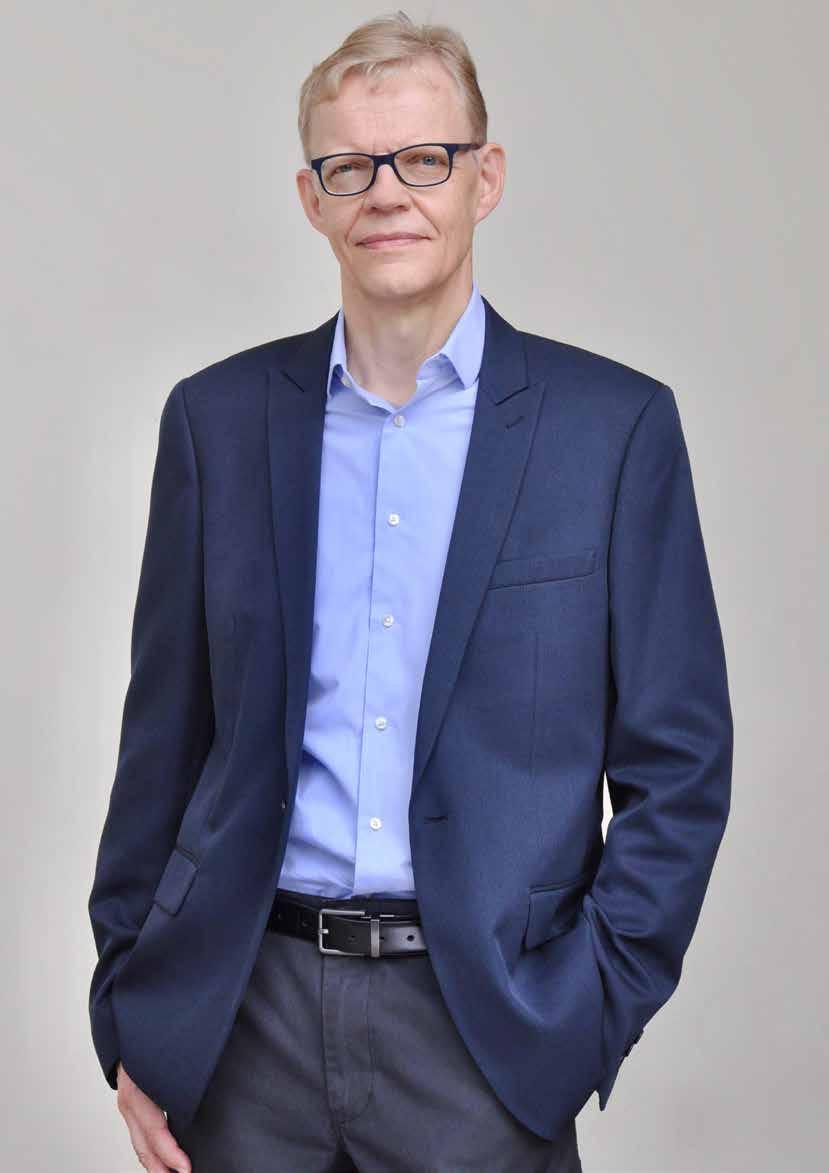
Education professional Jukka Majanen has between 2023 and 2024 been with the Finnish company Aalto University Executive Education (Aalto EE) and previously worked at INSEAD. Get to know more about Jukka (now 30+ years in Singapore), Aalto EE and also about ‘lifewide education’ - spearheaded by this Finnish education institute!
By Joakim Persson
Jukka initially moved to Singapore back in 1994. He got this first degree in Finland and then a Master of International Management in the U.S.
“At INSEAD I was always on the executive education side. INSEAD runs the world’s largest MBA programme, also EMBA programmes etc. I was however involved in the corporate training – non-degree programmes. I shifted to the custom solutions a number of years ago and that’s one type of programmes Aalto EE does as well – where you really design them from scratch for any organisation. Businesses may have some challenges; building up the leadership pipeline, wanting to create a more innovative culture, a more sustainable organisation, or concerning a merger and acquisition situation where you have to bring the cultures together,” begins Jukka.
“In the executive education business and the kind of role that I’ve been in, you need to understand those business issues. Where’s the pain of the company? Why are they thinking of sending people to some programme? Taking people out of their offices and paying tuition fees can be costly investments. So you need to be targeted. It requires conducting analysis, understanding the particular business, the motivations of its people, and what they are trying to achieve. That’s key. And you get better at it over time; I’ve been in this business for over twenty years.You may never fully arrive, but you gain a better understanding of different scenarios. A multinational company is very different

Learn, then earn, learn again, earn… that’s where the ‘lifelong learning’ concept enters the scene.

from a local company, let alone the government—they all have very different issues,” Jukka elaborates.
As for the actual diagnosis, he likes to compare it to the role of a doctor: finding the root of the pain and then prescribing the medicine or conducting the treatment. “In our business, the programme is the medicine—what we deliver to our clients. That sort of skill is developed over time, especially on the custom side, when you design from basically a blank sheet of paper.”
“And it happens that you encounter these very different issues that you don’t have a template for. But not every school or university can do it—it requires a willingness to design something new and really spend time on it. I think Aalto is quite good at that, designing very creative programmes. I’m also talking about my colleagues in Helsinki, where we have a big team doing some really interesting stuff, designing solutions to very complex problems for organisations,” he adds.
“I always say that the kind of training we do is not really just competence or skills development - executive education at its best is really changing people’s behaviour somehow, that they either start doing different things or they do things differently when they go back to the office - where the impact of the programme really is. And it’s amazing to see what impact you can really create; people coming back to you afterwards telling how they changed their leadership behaviours or restructured their organisation etc.”
Aalto in Singapore since year 2000
Jukka moved from INSEAD to become the Executive Director of Aalto EE’s operations in Asia in 2023: “It was a big change; even though the industry is the same, my role is very different. The organisation is very different. And what also appealed to me was not only the Finnish connection but the Aalto brand.”
Aalto EE has had an office in Singapore since 2000, operating as the Helsinki School of Economics until 2010.
“To my knowledge, Aalto is still the only Nordic university and business school with this kind of operation in Asia, with its own presence and offering these kinds of executive education programmes. It was the dean of the business school who saw potential in Asia in the mid-1990s. They found a very good partner in Seoul, Korea, whom we still work with. Imagine—a Finnish university has nearly 5,000 alumni in Korea alone! There are over 2,000 in Taiwan as well, with an Executive MBA programme since 2000. It’s quite remarkable for a European or Finnish university to achieve that,” thinks Jukka.
“Why do Asian companies and organisations keep on working with Aalto EE? One thing is that the teaching is very different from many of the Asian organisationsteaching in a very interactive way, where it’s really about trying to be very practical and not lecture that much, doing lots of workshop simulations etc. And this is not really the Asian way, traditionally.”
“We come from a world where it used to be ‘Learn, then earn.’ That has definitely changed. Now, you learn, then earn, learn again, earn... and that’s where the ‘lifelong learning’ concept enters the scene. People are expected to keep themselves up to date. The speed of change is so fast that if you don’t advance your knowledge, you—individually or as an organisation—will fall behind.”
Jukka explains Lifewide Learning’, spearheaded by Aalto: “These are very different kinds of products, with smaller chunks, and which can be designed as micro credentials. It’s being pushed hard by Aalto, being the leader in Finland in this, and, I believe, even at European level.”
“When you say ‘lifelong’ it kind of implies a linear mindset. With ‘lifewide’ we try to communicate that it’s
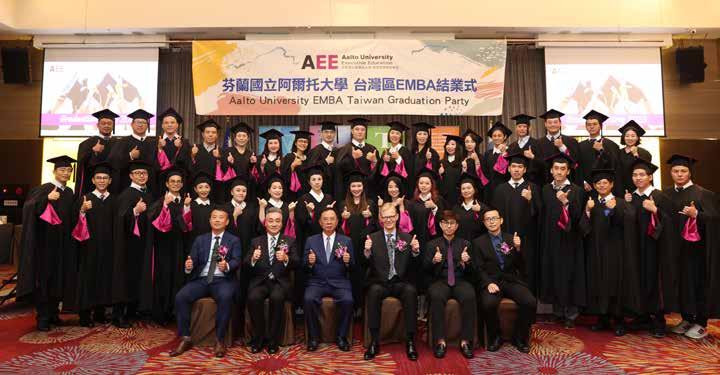
more multidimensional: ‘Look at what you’re doing right now, what position are you in? How do you upgrade your skills right now? And how do you sort of expand your scope? So that’s partly why we call it lifewide learning,” he elaborates.
“We’re doing quite a lot of development on this, within Aalto EE and at the university level. My boss Tom Lindholm, based in Helsinki, is not only the Managing Director of Aalto Executive Education, but also the head of lifewide learning at the University.
In a dedicated ‘Aalto Leaders Insight’ story (‘What is the Future of Lifewide Learning?’) Tom Lindholm talks about Aalto’s role as follows: 1) find new ways to provide easily accessible modular learning content for individual learners. There is a clear increase in demand, as people seek to update their existing knowledge based on latest research and acquire completely new competences to remain competitive and relevant in the job market; 2) meet the need to support organisations in their transformation, such as upskilling and reskilling.
Jukka, like many others, thinks that Finland has built a reputation for having a very good education system, one that is well-known around the world. “So, you have to give credit to the government for really creating the conditions for that to happen. And then, of course, we providers benefit from that because people look up to Finland.”
“In the Nordics, we are truly knowledge societies, where if you don’t keep your population at the leading edge, your future is not going to be very bright. I think the countries realise that and are really pushing it very hard right now, with things like AI development, and, of
course, the educational providers along with it. It’s super important to do. Singapore has the same challenge, even more so with limited national resources.”
In this context, Jukka notes that many are keen to learn from the Nordics, knowing that those countries rank at the top for most things. “Then, companies and organisations like us can ride on that branding. Personally, I have to recognise that it helps me tremendously because I don’t need to say much more than ‘Finland’ to get people in Asia excited,” he notes.
Aalto EE is also considering how ‘Nordic leadership’, as a concept, could be brought to Asia: “You cannot just copy and paste it, as the cultures are different. The question is what you can learn from it; what you can adopt and adapt. Aalto is planning to launch some programmes within this.”
In the extremely competitive landscape in Asia there are some other areas where Aalto EE strives to specialise, or differentiate in, with sustainability being among those. “Finland is considered a leading nation in sustainability and we conduct lots of research and teaching in that.”
“Aalto EE offers sustainability-related public programmes, where one can take courses individually. “We are also working on a new Executive MBA focused on sustainability,” informs Jukka. Another one is digital disruption and technology adoption; how to build a data-driven organisation including data analytics and AI, combining tech and business and even design. That’s another strong area of our university. A third one is entrepreneurship: we have quite a lot of experience in that, helping companies build entrepreneurial cultures.”
For Aalto EE in Asia growth is a key goal. “Of the Finnish universities Aalto is by far the most international and it’s a strategic decision to have this presence in Asia.”
Footnote: the ED role at Aalto EE in Singapore has been cancelled but Jukka remains in Singapore.
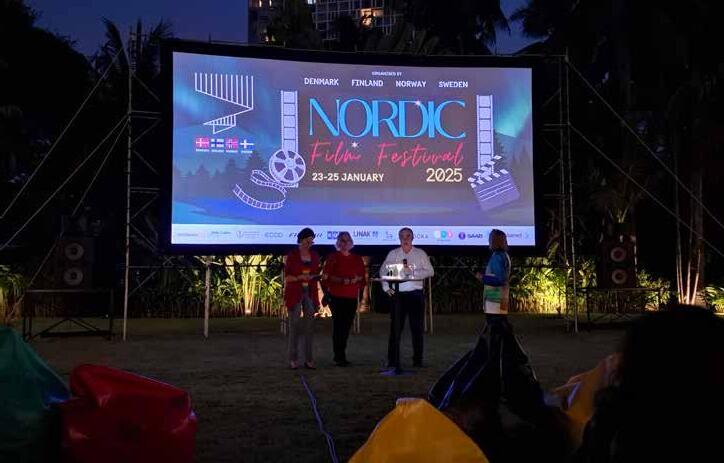
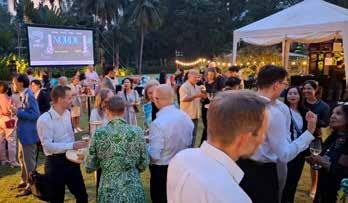
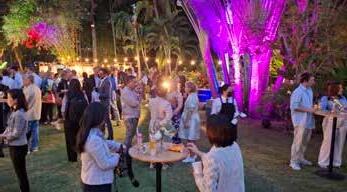
It was an exciting moment on Thursday evening in the garden of the Royal Danish Embassy in Bangkok, as the Ambassadors from Denmark, Norway, Finland, and Sweden personally introduced the films featured in this year’s Nordic Film Festival.
The reception on Thursday 23 January 2025, marking the opening of the festival, was an invitation-only event. The crowd included key staff from the four embassies, mingling with art critics, prominent figures from the Thai-Nordic Chambers of Commerce, and other notable members of the wider Nordic-Thai community.
The evening began with a warm welcome from the Danish Ambassador, Danny Annan, who emphasized the importance of cultural exchange through cinema. Each ambassador shared their perspective, offering insights into their national films and inviting the audience to experience the diversity of Nordic storytelling. Special attention was paid to Thailand’s remarkable move in pioneering the legalisation of same sex marriages in Thailand.
The first film of the evening was Finland’s “Tove”, a captivating biographical drama about Tove Jansson, the creator of the beloved Moomins. The film delved into Tove’s artistic journey, her struggles with societal ex -
pectations, and her coming out as a lesbian, making it a powerful and moving start to the festival. The audience was deeply engaged, with many appreciating the film’s authenticity and stunning visual style.
The event was made possible by the generous sponsorship of AstraZeneca, Atlas Copco, Bumrungrad Hospital, ECCO, Finnair, Kone, Linak, Novo Nordisk, Pandora, SAAB, Tetra Pak, and Valmet. Adding a forwardlooking dimension to the evening, a section of the garden featured a display of providers offering sustainability solutions across various fields tied to the modern concept of Smart Cities.
The Nordic Film Festival continues this weekend with two screenings each evening. Tonight, Friday 24 January 2025, Sweden’s “Comedy Queen” will be shown at 6:00 PM, followed by Norway’s “Sonja” at 8:00 PM. Tomorrow night, Saturday 25 January 2025, Finland’s “Tove* will return for a second screening at 6:00 PM, leading into Denmark’s historical epic “The Promised Land” at 8:00 PM.
Held under the stars in the embassy’s garden, the festival offers free admission on a first-come, first-served basis, with English subtitles ensuring accessibility for a broad audience. The event not only showcases the richness of Nordic culture but also strengthens cultural ties between Thailand and the Nordic countries.
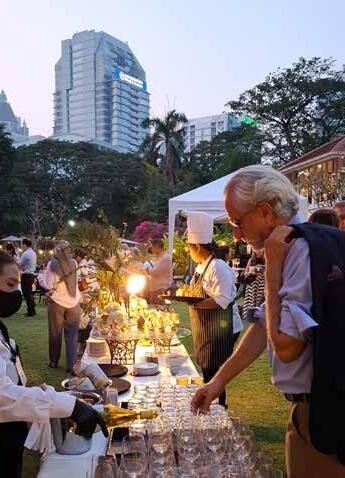


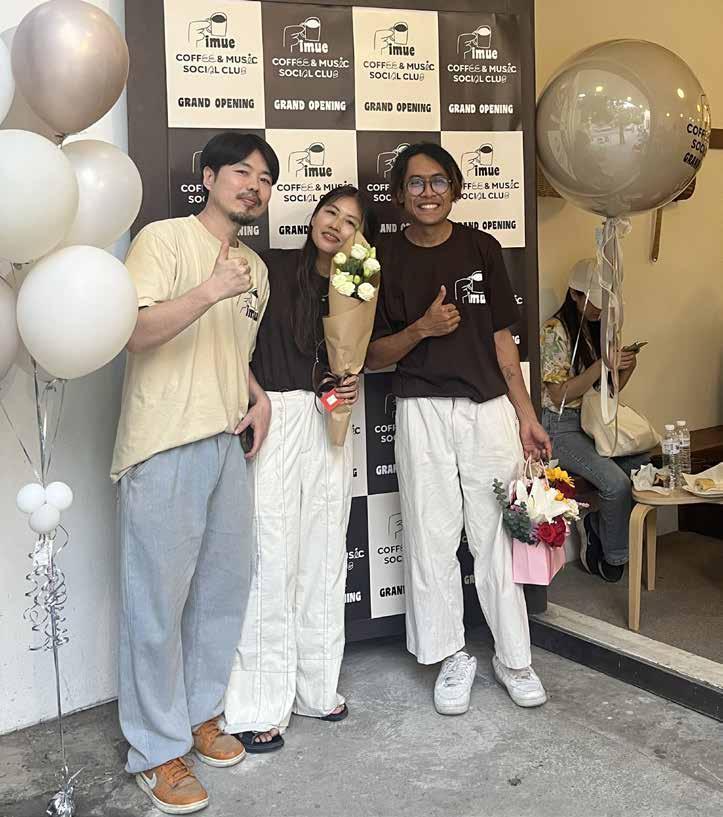
Social Club, a new café and community space, celebrated its grand opening on Sunday, 9 February 2025, in the heart of Chiang Mai. The event welcomed friends, family, and visitors who share a love for good drinks, music, and Scandinavian vintage aesthetics.
By Kanlayakorn Pengrattana
The opening night featured live jazz from J.Z. Boy, performances by Korean singer iiiiits, and a DJ set by Funkin Cat, creating a lively and inviting atmosphere. In an unexpected twist, the evening concluded with an impromptu breakdancing performance by some of the shop’s talented guests and baristas, earning cheers from the crowd and passersby.
Fimue offers customers individually roasted coffee and freshly homemade desserts, accompanied by a carefully curated selection of vintage items imported from Denmark and Sweden. From flower vases, picture frames, lamps, and furniture to ceramics and unique decorations, each item carries its own history. Additionally, Fimue sells handmade, eco-friendly products, such as seashell-based crafts made by local creators from Chiang Mai and Chiang Rai.
The shop also features a bookstore corner, displaying a collection of Danish and Swedish-language books, all available for purchase.
The inspiration behind Fimue stems from its founders’ love for coffee, music, and antique thrifting.
“As our partners have often traveled to Europe, they always visit antique stores in Denmark, Sweden, and other countries, looking for new vintage items to add to their collections. Every item we are selling here is specially selected by us,” said Kittikhun Kengkitjakarn, one of Fimue’s partners.
“Everything that has been created contains the creator’s soul. This is what we believe in and think must be cherished,” he added.
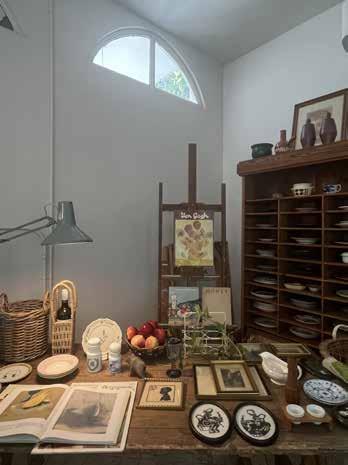
We wanted to relocate to Chiang Mai and make Fimue into an
‘Oasis of Peace’ where everyone can escape from the chaos of life to reconnect with what is meaningful.

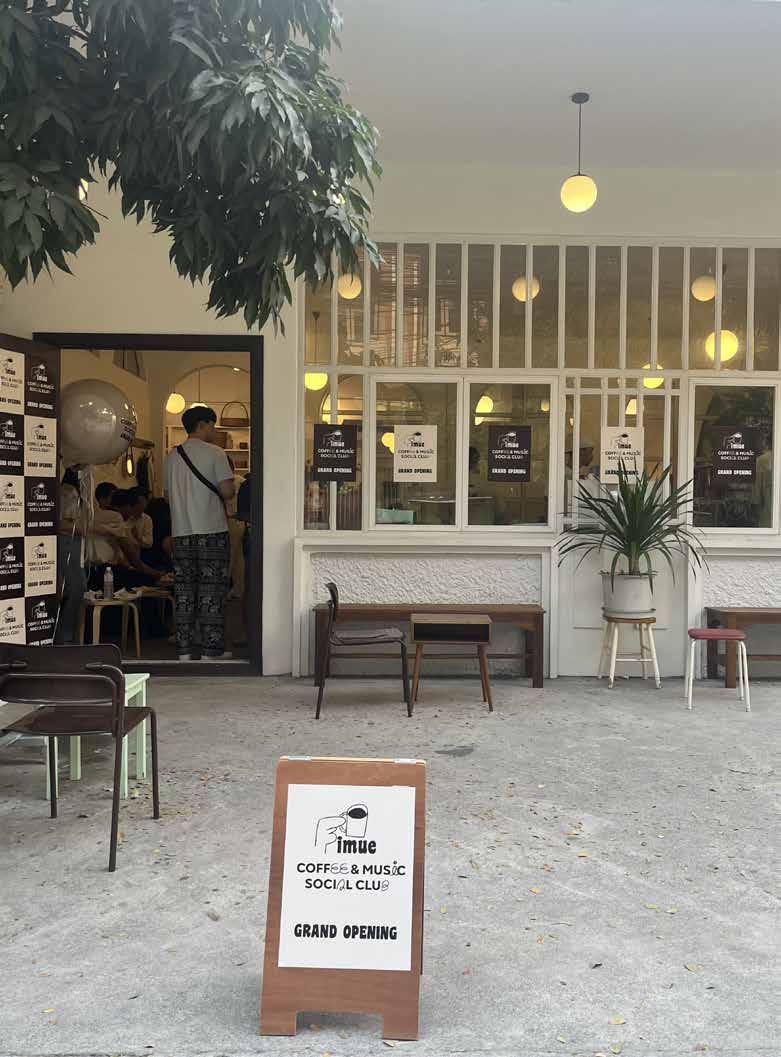
Every item we are selling here is all specially selected by us. We have bought so many goods from the shops abroad to the point where we now have become good friends with their owners
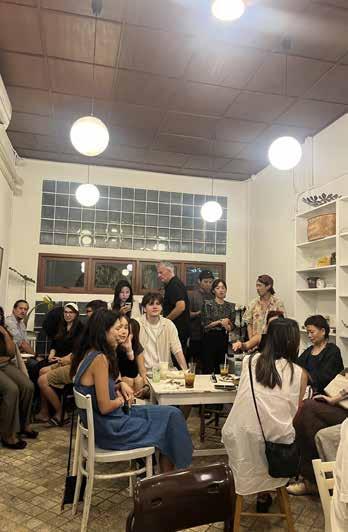
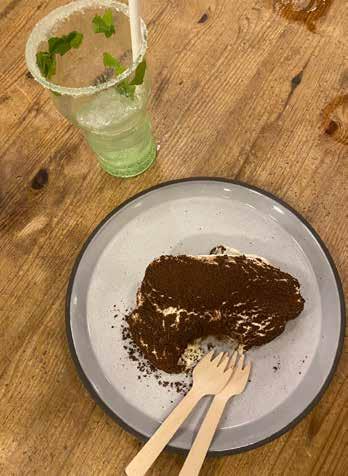
The name “Fimue” ( ฝีมือ ) means “craftsmanship” in Thai. The café is a collaboration between Thai and Korean partners who previously worked in the music production industry in Bangkok. Seeking a change of pace, they relocated to Chiang Mai with the vision of turning Fimue into an “Oasis of Peace,” a retreat where people can step away from the chaos of daily life and reconnect with what is meaningful.
Fimue is more than just a café—it is a community hub where visitors can immerse themselves in coffee, music, and antiquing. With its off-white walls and warm wooden interiors, the shop embodies the charm of Nordic vintage aesthetics while offering a cozy space to unwind.
The café is currently in its soft opening phase, fine-tuning its operations and customer experience. Yet, it has already become a go-to spot for visitors eager to enjoy its Nicolo Tiramisu, which has quickly gained popularity.
Fimue is located at 64 Siri Mangkalajarn Rd in the Suthep district, near Nimmanhaemin, a vibrant area in Chiang Mai known for its cafés, hotels, and artistic atmosphere.


One Friday afternoon, when the weather had a very pleasant temperature, I decided to go and have a closer look at the latest shopping mall, One Bangkok. I always wonder if there is a need of more huge shopping mall, I don’t know!
This mall, consisting of several architecturally different buildings, is located on Witthayu Road near Lumpini Park. It is huge, and you need lots of time to discover it all. In my opinion, I find it a little sterile, and you don’t just go there to buy a pair of shoes or whatever. It’s hard to find your way around and the exits, and on the Friday afternoon I visited, I could count the visitors on my two hands. Outside, between the buildings, is a beautiful fountain that sprays water—a nice, quiet area where you can sit down and catch your breath.
You can also have a look at The Wireless House.This house is not just an old building that still stands because the owner refused to move out but a replica of the old Sala Daeng Radio and Telegraph Station, which has been remodeled and rebuilt in a new location as an exhibition
The old Sala Daeng Radio and Telegraph Station was demolished. The building of today looks exactly like the original.
space that tells the story of the area from its early days. It is part of the conservation project for Thailand’s first radio and telegraph station building.
Sala Daeng is surrounded by Rama IV Road and Ploen Chit Road, the two main roads that both head east. The area was once a suburb with rice fields and open spaces, and its nickname was Thung Sala Daeng (the red pavilion). Later on, many intersection roads began to emerge, forming several blocks, such as Henri Dunant Road, Ratchadamri Road, and Witthayu Road. Over time, the old city became too crowded, and people moved outside—especially foreigners who didn’t like living in a very crowded city. Today, you will find many embassies and consulates in this area.
On January 13, 1913, King Rama VI came to perform the opening of Sala Daeng Radio and Telegraph Station. The radiotelegraph was, in fact, the very first wireless technology in Thailand. This is also why the road was called Wireless Road and not Radio Road—because “radio” here means “wireless.”
Many years later, the night market Suan Lum Night Bazaar was developed in this area, and the Sala Daeng Radio and Telegraph Station was demolished.
When One Bangkok designed the landscape around the newly built radio and telegraph station building, they chose trees from the same family or similar to those previously found, such as Borneo Margaret, Rose Apple, or Water Iris.
Today, 20 years have passed since the old Sala Daeng Radio and Telegraph Station was demolished. The building today looks exactly like the original, rebuilt in a slightly different location.
Inside the building, you will find a permanent exhibition presenting the history of the Sala Daeng Radio and Telegraph Station.
The conservation architect Mr. Jua, sees this project as one of his masterpieces.

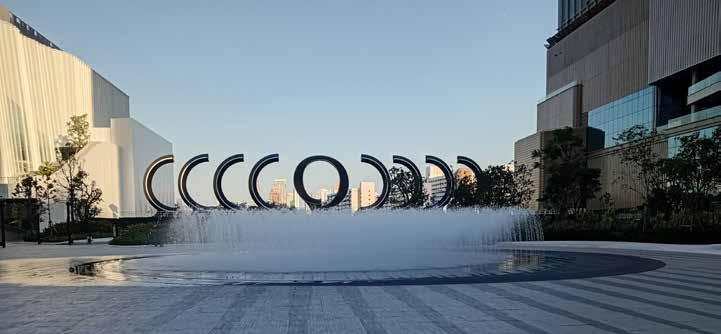

Every day, as you walk around, you will discover new buildings. Bangkok is a city that never stops surprising you, worthy of the nickname “The City That Never Sleeps.”
If you wish to visit and learn more, The Wireless House One Bangkok is open daily from 10 am to 8 pm. You will get a good history lesson by visiting the exhibition.
On my way home, I also decided to visit the recently opened new Dusit Thani Hotel.
Many years ago, I stayed several times in this hotel. It was a genuine Thai hotel, and I loved the long bar in the lobby serving oysters, caviar, and Champagne. At that time, they also had the best Irish Coffee, in my opinion.
I must say, I was quite impressed by the new building. There is still a nice bar in the lobby and Thai decorations. The staff was extremely welcoming and polite. I explained that I just wanted to take a look, and I was immediately escorted around. There are two high-floor bars: one is called SPIRE Rooftop Bar, a very inviting place where you
can dine and/or enjoy a fancy cocktail or a glass of wine. The view is breathtaking, allowing you to admire almost the whole Lumpini Park. The other bar is called 1970, a nostalgic name, I was told. In short, a third smaller bar will be opening, specializing in signature cocktails.
In my opinion, this is one of the most beautiful hotels in town and is worth visiting.
Close to Central Embassy at Chit Lom, I passed the new Christian Dior shop. This exclusive store features a very attractive gold-toned façade with a large DIOR sign. The shop also has its own tuk-tuk, a very elegant one.
Every day, as you walk around, you will discover new buildings. Bangkok is a city that never stops surprising you, worthy of the nickname “The City That Never Sleeps.”
Let’s see what’s new next month.
The Sarawak Tourism Board (STB) participated in MATKA 2025, Northern Europe’s largest travel fair, held in Helsinki from January 16 to 19, 2025. The event provided an opportunity to highlight Sarawak’s unique blend of nature, culture, and sustainability to the Nordic market, known for its strong interest in eco-conscious travel.
Sarawak, Malaysia’s largest state, promoted its rich natural heritage, including the UNESCO-listed Mulu and Niah National Parks, as well as the Sarawak Delta Geopark. The board also showcased its vibrant cultural attractions, such as the Sarawak Cultural Village and the Borneo Cultures Museum. Visitors to the Sarawak booth experienced traditional sape music, nose flute
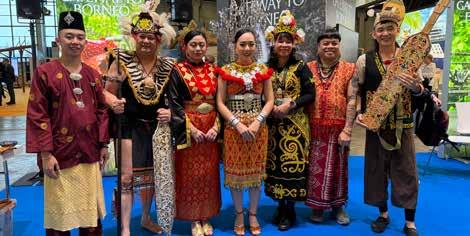
performances, cultural dances, and tree bark painting demonstrations. Sarawak’s participation alignes with Malaysia’s preparations for Visit Malaysia Year 2026, aiming to attract more Nordic travelers seeking immersive and sustainable tourism experiences.
With its commitment to responsible tourism and a diverse range of offerings, Sarawak sucessfully showcased its appeal as a destination where nature and culture come together. Nordic expats living in Asia might be the first to experience this before the rush.

Bilateral trade between Sweden and Vietnam grew by 11.8% in the first 11 months of 2024, reflecting economic recovery and deepening cooperation as both nations mark 55 years of diplomatic relations.
Sweden remains Vietnam’s top trade partner in Northern Europe, with companies like IKEA and H&M expanding production in Vietnam amid global supply chain shifts. The Vietnam-Sweden Business Forum in Stockholm on September 6, 2024,
focused on digital transformation, energy, and innovation, resulting in five memoranda of understanding (MOUs).
Key agreements, including partnerships between Tân Cảng Sài Gòn and Gothenburg ports, aim to streamline logistics. Additionally, Ericsson and Mobifone launched a 5G Innovation Center in Vietnam, boosting tech collaboration.
The EU-Vietnam Free Trade Agreement (EVFTA) continues to support trade growth, with bilateral trade reaching USD 1.29 billion in 2023. Rising demand for eco-friendly products in Sweden presents new opportunities for Vietnamese exports, particularly in organic agriculture, seafood, and sustainable textiles.
Elvira Pitzner, a well-known Danish influencer, has sparked controversy after sharing an Instagram post from her vacation in Thailand. The post shows her brushing an elephant’s forehead and trunk with a red brush at what she described as an “elephant sanctuary.”
“During the night, they sleep in the wild jungle and come back for food and bathing during the day. How beautiful are these animals?” Pitzner wrote in the caption.
However, the post has drawn criticism from the animal rights organization World Animal Protection, which argues that such interactions harm the animals.
“There is no freedom for these elephants in a life where tourists can get close enough to touch them,” the organization commented on

Pitzner’s post.
They further explained that experiences like bathing or riding elephants often mask a cruel industry where elephants are subjected to harsh treatment.
“Even if a site claims to have rescued the animals or operates as a sanctuary, if you can touch, ride, or
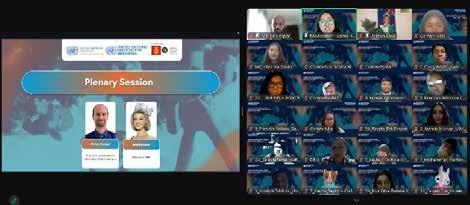
The Danish Embassy in Indonesia, in collaboration with UNA Indonesia and the UN, hosted a Global Youth Conference on January 12, 2025, focused on
youth-led actions for sustainable development. Over 2,000 young leaders from across five continents participated in the event.
“The Sustainable Development
bathe with elephants, it’s likely they have suffered significant mistreatment,” they wrote.
The organization urged Pitzner to delete her post, emphasizing that promoting such activities inadvertently endorses animal exploitation.
This is not the first time a Danish celebrity has faced backlash over elephant encounters in Thailand. In August 2024, makeup artist Dennis Knudsen received similar criticism. Initially defending his actions, he later removed his posts and apologized.
Animal rights organizations continue to emphasize that wild animals should only be observed from a respectful distance. They encourage tourists to avoid facilities that allow physical contact with animals, as such interactions often perpetuate a harmful industry.
Goals require youth participation for success,” said Miklos Gaspar, UNIC Indonesia Director. He emphasized the importance of empowering young people to adopt sustainable lifestyles and drive change in their communities.
Key topics included water and waste management, gender equality in education, and youth diplomacy for cultural exchange. Danish Environment Councilor Erika Torres Liquin highlighted youth initiatives in sustainable waste solutions, while experts stressed the role of digital literacy and cross-cultural collaboration.
Renowned Swedish glove manufacturer Hestra officially opened its state-of-the-art facility in Phnom Penh on January 22, 2025. This new factory, situated within the Royal Phnom Penh Special Economic Zone, represents a significant investment in the region.
The inauguration ceremony featured several dignitaries, including Chea Vuthy, Secretary General of the Cambodian Investment Board, and Anna Hammargren, the Swedish Ambassador to Thailand, who oversees Cambodia. Uematsu Hiroshi, Group Executive Director of the Royal Group Phnom Penh Special Economic Zone, and Anton Martin Magnusson, CEO of Hestra Cambodia Co Ltd, also attended.
During the ceremony, Chea Vuthy congratulated Hestra for choosing Cambodia as its latest investment destination. He emphasized the company’s successful operations in countries like China, Hungary, and Vietnam. Vuthy noted that Hestra’s establishment in Cam-
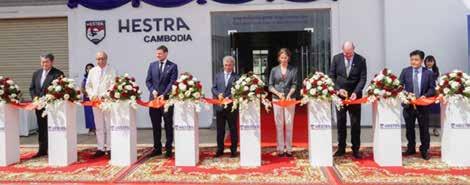
bodia will create valuable job opportunities and enhance the nation’s socio-economic landscape.
Additionally, he assured attendees that the Cambodian government, under Prime Minister Hun Manet, remains committed to improving the investment climate, tourism, and infrastructure.
Hestra, founded in 1936, has established itself as a leading glove manufacturer worldwide. With this move, the company marks the first Swedish venture in Cambodia’s glove industry. The new factory specializes in sports equipment made
from leather and fabric, and it is expected to generate around 200 jobs, positively impacting the local economy.
Furthermore, Cambodia’s Ministry of Economy and Finance reports that Foreign Direct Investment (FDI) inflows surged to $8.1 billion between September 2023 and September 2024. This growth demonstrates strong international confidence in Cambodia’s policies and stable economic conditions, with key investors including China, South Korea, and Japan.
Vietnam aims to establish a green strategic partnership with Norway, focusing on green transition, circular economy, and climate change adaptation, according to Deputy Minister of Foreign Affairs Lê Thị Thu Hằng. She welcomed discussions on a Letter of Intent to strengthen cooperation in these areas.
Hằng made the statement during a meeting with a Norwegian parliamentary delegation led by Aslaug Sem-Jacobsen. The delegation is on a three-day visit to Vietnam, meeting local officials and institutions.
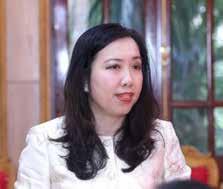
Hằng emphasized the importance of bilateral cooperation, particularly in the maritime economy, and urged Norway’s support in lifting the European Commission’s “yellow
card” on Vietnam’s seafood exports to promote sustainable aquaculture. Sem-Jacobsen confirmed Norway’s commitment to developing the partnership, highlighting the visit’s goal of advancing Vietnam-EFTA Free Trade Agreement negotiations and boosting cooperation in renewable energy, infrastructure, and green transition. The two sides also discussed regional and global issues, including the peaceful resolution of East Sea disputes under international law and UNCLOS.
On January 16, representatives from the Myanmar and Denmark Red Cross societies met to enhance childfriendly centres in Myanmar. They gathered at the Myanmar Red Cross Society’s Yangon Region office in order to discuss operations and expansion efforts.
Leading the discussions, Professor Dr. Myo Nyunt, President of the Myanmar Red Cross Society, and Ms. Patricia Carolina Guadelupe Dumazert, the MHPSS Advisor from the Denmark Red Cross Society, explored various initiatives. For instance, they highlighted capacitybuilding programs for volunteers, planned training for caretakers, organized workshops to review op -

erations, and outlined strategies to expand mental and social assistance programs.
In addition, key officials from both societies attended the meeting. Notably, these included Myanmar Red Cross executives Professor Dr. Daw Mya Thu, Professor Dr. Daw Yi
Yi Tin, Professor Dr. Tin Maung Hlaing, and Assistant Secretary-General Daw Ei Ei Htwe, along with Denmark Red Cross Country Manager Mr. Fabio Beltramini.
Importantly, the child-friendly centres aim to provide emotional support to vulnerable children, promote good hygiene practices, and create a safe, joyful environment for play. One notable centre recently opened in Taunggyi Township, Southern Shan State, specifically focusing on community needs.
Ultimately, through this collaboration, the societies strive to enhance the welfare of children in Myanmar and foster a supportive environment for their growth and development.
H.E. Anna Hammargren, Swedish Ambassador to Thailand, recently visited Tiffany’s Show Pattaya, celebrating its cultural significance and historical ties between Thailand and Sweden.
Dr. Darin Phanthusak,Vice President of PTS Holdings, hosted Ambassador Hammargren and shared the legacy of her late father, Senator Sutham Phanthusak, who founded Tiffany’s Show over 40 years ago. Dr. Darin highlighted her father’s close friendship with Sweden’s King, which added a personal touch to the ambassador’s visit.
Ambassador Hammargren praised the show for its stunning performances, vibrant costumes, and creative stagecraft, emphasizing its importance as a cultural and tour-

ism icon.
Tiffany’s Show continues to blend Thai artistry with global appeal, while its inclusivity and support for LGBTQ+ performers embody
shared values of openness and creativity. The ambassador’s visit underscored the enduring cultural and diplomatic bonds between Thailand and Sweden.
The Royal Thai Embassy in Helsinki has announced the introduction of marriage registration services for all couples, regardless of gender, starting from January 23, 2025. This initiative follows the recent implementation of Thailand’s Marriage Equality Act, which allows all Thai nationals to legally register their marriage at the embassy.
The marriage registration services will be available for both ThaiThai couples and Thai-foreigner couples residing in Finland and Estonia. This development represents a significant advancement in recognizing marriage equality for Thai citizens living abroad.
To apply for marriage registration at the embassy, couples must
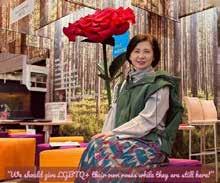
provide several documents, including:
A completed application for registration of marriage
Identification documents (Personal ID for Thai nationals and passport for foreigners)
A certificate of marital status (for foreign nationals)
Once the embassy reviews the
submitted documents, it will confirm the appointment and issue a marriage certificate.
Additionally, Thai nationals who have already registered their marriage under Finnish law can bring their Finnish marriage certificate to the embassy for legalization. This process enables them to apply for the addition of their marriage details to the family registry in Thailand. However, updating the family registry must occur in Thailand, either by the couple themselves or through a power of attorney granted to a Thai representative.
For further inquiries regarding the marriage registration process, interested individuals can contact the Royal Thai Embassy in Helsinki via email at consular@thaiembassy.fi.
Fashion giant Zara has partnered with Swedish video commerce company Bambuser to introduce a livestream shopping platform in China, expanding its digital strategy in one of the world’s largest e-commerce markets.
Launched on January 9 alongside Zara’s Chinese New Year collection, this feature allows customers to shop directly from livestreams, enhancing their online shopping experience.
“China is the dominant market for live shopping, and brands want to connect directly with customers,” said Maryam Ghahremani, CEO of Bambuser. “Our partnership with

Zara enables them to deliver highquality livestream shopping on their own platform.”
China leads the global livestream shopping market, with 54.7% of consumers using the medium. While traditionally driven by
marketplaces, the trend is shifting toward direct-to-consumer (D2C) channels—a shift Zara is embracing with Bambuser.
Following the success of its ZaraStreaming initiative in western markets, featuring Cindy Crawford and Kaia Gerber, Zara is now leveraging Bambuser’s technology to expand in China.
Bambuser, based in Stockholm, is a global leader in video commerce, serving over 250 brands in 40+ countries. Founded in 2007 as a livestreaming pioneer, it pivoted to live shopping in 2019, becoming a key partner for brands integrating video into digital retail.
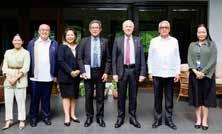
The Danish Embassy in the Philippines plans to host an online seminar focused on the shipbuilding industry. This initiative, therefore, aims to strengthen the sector in collaboration with the Anti-Red Tape Authority (ARTA) and the Department of Transportation (DOTr).
Notably, this announcement followed a recent working lunch led by Danish Ambassador Franz-Michael Skjold Mellbin. Key attendees included ARTA Secretary Ernesto Perez and Better Regulations Office
Director Marbida Marbida. During the meeting, participants actively discussed strategies to position the Philippines as a strategic hub for shipbuilding amid the rapid advancements in the global shipping industry.
Furthermore, the embassy emphasized the importance of the Philippines in enhancing geopolitical influence, boosting economic growth, and making a significant diplomatic impact on a global scale. In a statement, the Danish Embassy expressed strong support for the Philippines’ efforts to develop as a strategic location for shipbuilding. They highlighted the critical role that the maritime industry plays in international trade and security.
In addition, Ambassador Mellbin stated, “We look forward to continuing our collaboration with Filipino and Danish partners to build
a robust, secure, and sustainable maritime industry.”
Moreover, during the meeting, Secretary Perez underscored the significance of private sector involvement in the industry’s development. He reiterated President Ferdinand Marcos Jr.’s commitment to improving bureaucratic efficiency and facilitating industry growth.
The meeting also featured contributions from several officials, including Transportation Maritime Sector Undersecretary Elmer Francisco Sarmiento, Maritime Industry Authority Deputy Administrator for Operations Nannette VillamorDinopol, and MARINA Shipyard Regulation Service Director Ramon Hernandez. Ultimately, this collaborative effort marks a significant step forward in strengthening the Philippine shipbuilding industry.
Norway’s seafood exports hit a record high in 2024, totaling NOK 175.4 billion— a NOK 3.7 billion increase from the previous year, according to the Norwegian Seafood Council. While seafood remains a cornerstone of Norwegian exports, it’s less popular on home dinner tables, where red meat consumption outpaces fish nearly threefold.
Globally, Norwegian seafood is thriving. China emerged as the largest growth market, with ex -

ports increasing by NOK 886 million (+10%), driven by demand for salmon and mackerel. Thailand and Vietnam also saw notable growth,
with export values rising by 13% and 20%, respectively.
Despite growing exports, domestic sales lag, impacted by high costs and shifting consumer habits. The Norwegian Seafood Council is working to boost local consumption through campaigns promoting quick and versatile dishes like sushi and poke bowls.
The success of Norwegian seafood abroad underscores its global reputation, with Asia leading the way in 2024.
Finnish citizens residing abroad will have the opportunity to vote early in Finland’s 2025 regional and municipal elections this spring. Advance voting will take place from April 2 to 5, 2025, at 112 polling stations across 79 countries, including Finland’s embassies, consulates, and designated offices worldwide. This provides Finnish expatriates with an opportunity to participate in the democratic process, even while living outside Finland.
In Singapore, advance voting will be held at the Embassy of Finland from January 24 to 26, 2025. Similar arrangements will be available in other locations in South East Asia where Finland has a diplomatic mission. Some polling stations may

have specific opening days within the advance voting period, so voters are encouraged to check the official schedule in advance.
Finnish citizens abroad can also choose to vote by post if they are unable to visit a polling station.
Instructions for postal voting are available on the Finnish Ministry of Justice’s elections website.
The regional elections determine representatives for Finland’s well-being services counties, while municipal elections in Åland shape local governance. Eligible voters must bring a valid Finnish passport or identity card as proof of identity when casting their ballots.
More details on advance polling stations and their schedules will be published on the Electionsfinland. fi website by the end of January 2025. Finnish citizens seeking additional information can contact the Elections Helpline or reach out via the WhatsApp message service provided by the Ministry of Justice.

The Royal Thai Air Force has defended its decision to procure Saab Gripen fighter jets following criticism over the choice. The decision to acquire the Swedish-made aircraft was made to enhance Thailand’s defense capabilities
and ensure compatibility with existing military systems, officials stated.
Air Chief Marshal Punpakdee Pattanakul emphasized that the Gripen jets offer a cost-effective solution with advanced technology, citing their operational efficiency, multi-role capabilities, and interoperability with Thailand’s existing defense infrastructure.
The procurement decision comes amid scrutiny over military spending, with some questioning whether other options, such as American F-16s, would have been a better fit. However, the RTAF maintains that the Gripen jets provide
long-term benefits, including lower maintenance costs and high adaptability to modern combat requirements.
Thailand previously acquired Gripen jets in 2011, forming part of the country’s air defense strategy. The latest procurement aims to further strengthen air force capabilities, ensuring national security amid evolving regional threats.
Despite the debate, the RTAF has reaffirmed its commitment to modernizing its fleet with the best available options suited to Thailand’s defense needs.
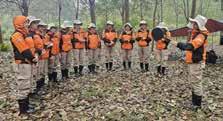
Norwegian People’s Aid (NPA) Vietnam has kicked off the new year with a focused Quality Management Refresher Training for its teams in Quang Tri Province. Conducted over two days from January 2-3, 2025, this training marked the formal resumption of work after the holiday break.
Led by NPA Vietnam’s Quality Management Coordinator, Le Hoai Niem, the program aimed to enhance Quality Management knowledge and skills among team leaders
and field operations officers. This initiative ensures consistently highquality operations across all activities.
During the training, participants delved into the essentials of Quality Management, covering crucial terminology, definitions, and standards pertinent to both national and international mine action, as well as NPA’s Standard Operating Procedures (SOPs). Additionally, the training clarified the distinct differences between Quality Assurance and Quality Control, thereby emphasizing the importance of addressing Non-Conformances, both critical and minor.
Moreover, a practical session on Quality Assurance and Control procedures at a battle area clear-
ance site allowed participants to apply what they learned in a realworld context, culminating in a dynamic exchange of ideas and best practices.
As a result, NPA Vietnam is confident that this training has equipped its teams with the requisite knowledge and tools to uphold the highest quality standards in their work. Ultimately, this initiative reinforces NPA Vietnam’s commitment to safety and effectiveness in all humanitarian mine action activities.
Finally, the organization extends its heartfelt gratitude to the governments of the Norway, United States and the Federal Republic of Germany for their invaluable support in funding these crucial efforts in Vietnam.
Norwegian customs officials report a sharp rise in drug smuggling via postal services in 2024, with Thailand emerging as a key source. Authorities seized record amounts of narcotics, including 35 kilograms of ketamine.
Customs Director Øystein Børmer highlighted smugglers’ creative methods, such as hiding marijuana in teddy bears and truffles. Since 2021, marijuana seizures have doubled annually, with many shipments linked to countries where cannabis is legal, like Thailand. While some are for personal use, larger quantities suggest ties to organized crime.

Børmer warned against ordering drugs online, stating, “You never know what you’ll receive.” He also noted that ketamine is increasingly replacing cocaine due to high demand and low penalties in Norway. Beyond drugs, customs inter-
cepted 13 tons of illegally exported fish in 2024, including 3.5 tons in Troms and Finnmark.
Authorities urge caution, emphasizing the risks of purchasing drugs online from unauthorized sources.
On January 22, 2025, at 2:00 PM, Mr. Wan Muhamad Noor Matha, President of the Thai National Assembly and Speaker of the House of Representatives, welcomed H.E. Mrs. Anna Hammargren, Ambassador of Sweden to Thailand. The meeting, held in Reception Room 205 at the Parliament Building, was attended by Mr. Cholthani Chuenoi, President of the Thai-Swedish Parliamentary Friendship Group, along with other representatives and officials.
Mr. Matha emphasized the long-standing relationship between Thailand and Sweden, which spans over 157 years, involving royal, governmental, and parliamentary ties.
He noted past visits by Thai monarchs, including Kings Rama V, IX, and X, as a testament to these strong relations.
Discussions focused on enhancing trade and investment, highlighting major Swedish companies like Volvo, IKEA, and Electrolux, which contribute significantly to local employment. Mr. Matha expressed optimism for a successful Free Trade Agreement (FTA) between the two nations.
Regarding defense, he cited Thailand’s procurement of Swedish Gripen E/F fighter jets, reinforcing military collaboration. He also noted that nearly 200,000 Swedish tourists visit Thailand annually, with
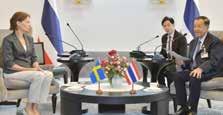
around 10,000 Swedes residing in the country.
Ambassador Hammargren reaffirmed Sweden’s commitment to trade and investment, mentioning the presence of over 120 Swedish companies in Thailand. She also discussed Sweden’s NATO membership application and welcomed Thailand’s enactment of the Marriage Equality Act, celebrating a milestone for LGBTQ+ rights.

The Philippines and Denmark are preparing a new Memorandum of Understanding (MOU) that aims to elevate the education, training, and welfare of Filipino healthcare professionals aspiring to work in Denmark.
The Department of Migrant Workers (DMW) announced that the MOU will focus on providing upskilling programs for Filipino nurses and healthcare assistants, ensuring
they meet Denmark’s rigorous standards in medical and elderly care.
“This MOU will solidify the partnership and facilitate future collaborations in healthcare training and recruitment,” the DMW said in a statement.
Key aspects of the agreement include developing specialized training programs, streamlining recruitment processes, and ensuring fair, ethical, and sustainable hiring practices. Filipino healthcare workers will also be guaranteed protections in Denmark, such as employment rights and social security, in alignment with Danish labor standards.
To formalize the initiative, DMW Secretary Hans Leo J. Cacdac and Danish Ambassador to the Philippines Franz Michael Skjold Mell -
bin recently signed a Joint Declaration of Intent (JDI). This declaration establishes a Joint Committee to oversee the negotiations of the proposed MOU, which are expected to conclude within a year.
This partnership underscores Denmark’s recognition of the skills and dedication of Filipino healthcare workers and highlights the Philippines’ commitment to enhancing opportunities for its professionals abroad. Once finalized, the MOU promises to be a significant step in strengthening ties between the two nations while benefiting Filipino healthcare workers through improved training and welfare measures.
The negotiations is expected to be concluded within 12 months.

Finland’s Minister of Employment, Arto Satonen, together with Business Finland and a delegation of other stakeholders visited Manila from January 16-18 to further strengthen the ties between the two countries and attract talent for international opportunities.
The visit highlighted career opportunities available in Finland for Filipino talents in sectors such as technology, industry, and healthcare. With a growing demand for skilled employees leading to more Finnish employers seeking professionals from abroad, Finland is positioning itself as a reliable partner in international recruitment, offering a high quality of life and diverse career opportunities.
In addition to the Philippines, the Finnish government also identifies Vietnam, India, and Brazil as prime countries for recruitment cooperation.
“Finland wants to enhance cooperation between our nations to help businesses and international experts connect,” stated Minister Arto Satonen.
“We are committed to supporting employers and experts to ensure they have favorable con -
ditions for successful recruitment. Upholding ethical standards and smooth recruitment processes remain our top priorities,” he added.
The minister signed a Joint Declaration of Intent (JDI) during the visit between the Department of Migrant Workers (DMW) of the Philippines and the Ministry of Economic Affairs and Employment (MEAE) of Finland. The declaration highlights both countries’ commitment to ensuring Filipino skilled workers’ safe and ethical deployment.
Laura Lindeman, senior director and head of Work in Finland, was part of the delegation
“Finnish recruitment companies have hired from the Philippines for over 10 years. Now, we aim to assist on a national level to help them find reliable partners here. This market holds significant opportunities,” she says.
Filipino professionals enjoy a strong reputation in the Finnish labor market and receive appreciation from employers. Finland recognizes the skills and potential of the Filipino workforce, along with those from the other focus countries. “These countries boast reputable educa -
tional institutions that prepare individuals with the skills Finland needs. Additionally, a cultural affinity exists in many cases,” Lindeman added.
She highlighted sectors with growing demand for Filipino workers and specialists, particularly in technology, health, and industry. According to Work in Finland data, there are currently 878 job openings for English-speaking professionals.
As of 2023, approximately 12,770 Filipino workers across various sectors in Finland are employed, mainly in health, technology, services, and industrial roles. “Finland offers an equal society with an exceptional work-life balance. Our high-quality companies provide vast opportunities for professional development and education,” concluded Lindeman.
Juhana Vartiainen, the Mayor of the City of Helsinki was another member of the delegation.
“As a city, we welcome newcomers and offer a comprehensive range of information and public services to assist with settling into a new country,” Juhanna Vartiainen says.
“The city of Helsinki is a large employer in Finland, and we actively seek talented workforce from abroad, particularly in our healthcare sector. With our ethical recruitment principles, we ensure a transparent and fair recruitment process. Helsinki provides exciting opportunities for all and fosters an excellent worklife balance, “ he added.
Business Finland (www.businessfinland.com) is an organization for financing innovation and promoting trade, travel, and investment. Business Finland’s 760+ experts work in more than 40 offices around the world and 16 regional offices in Finland. Work in Finland unit attracts talent and startup founders to Finland and helps companies recruit international professionals.
AFinnish court is hearing a human trafficking case involving 62 Thai berry pickers, shedding light on exploitative labor practices in Finland’s berry industry.
The trial centers on Kalyakorn “Durian” Phongpit, a Thai coordinator, and Vernu Vasunta, CEO of berry company Kiantama. Prosecutors allege the workers faced forced labor, poor conditions, and unfair wages, with one picker earning just €115 for harvesting 3,500 kg of berries. If convicted, the defendants face 3 to 4 years in prison.
Workers described misleading recruitment promises, inadequate
food, and pressure to meet unrealistic quotas. Many signed contracts they could not understand, forcing them to cover travel and accommodation costs regardless of earnings. The defense argues that some workers lacked experience, affecting productivity.
The trial, expected to continue until March, highlights broader issues in Finland’s reliance on seasonal migrant labor. Phongpit also faces separate human trafficking charges related to 78 workers at another berry company, with that trial set for May.
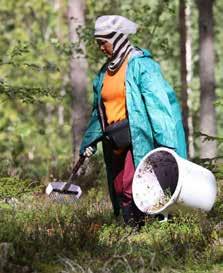
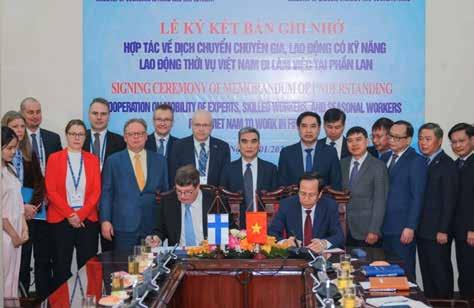
Vietnam and Finland have signed a five-year Memorandum of Understanding (MoU) to enhance cooperation on labour migration. The agreement
was signed on January 13 in Hanoi by Vietnam’s Minister of Labour, Invalids and Social Affairs, Dao Ngoc Dung, and Finland’s Minister for Employment, Arto Olavi Satonen.
The MoU aims to promote ethical, transparent, and sustainable recruitment of skilled workers and seasonal labourers from Vietnam to Finland. It aligns with the laws and international standards of both nations, prioritizing worker rights and preventing exploitation.
Minister Dung highlighted Vietnam’s growing role in global labour markets, with 700,000 workers currently employed in 40 countries. He noted that Finland is already employing Vietnamese workers, with many earning stable incomes and benefiting from favourable conditions.
Minister Satonen and Finnish officials expressed optimism about expanding partnerships to support businesses and attract skilled Vietnamese professionals.

Almost half of children aged 9 to 14 have shopped or received items from the Chinese e-commerce platform Temu, according to a new Epinion survey. The platform attracts young users with cheap and trendy products, but Denmark’s Consumer Council “Tænk” warns about many of its goods.
Project leader Stine Müller highlights that several textiles and gadgets from Temu may contain potentially harmful chemicals. Previ -
ously, the council failed 30 out of 38 items tested from the platform.
Despite these warnings, the target audience remains undeterred. Children in the 9–14 age group are frequent users of Temu, even though the platform’s policies explicitly prohibit minors from shopping.
In a statement to DR, Temu emphasized that they enforce rules against underage users, but the survey suggests that Danish kids continue to shop on the site.
On January 14, 2025, SF Airlines launched its inaugural cargo flight from Ezhou City in central China’s Hubei Province to Oslo, the capital of Norway. Notably, this flight marks the first direct cargo connection between the two regions, enhancing international trade prospects.
The new service employs a Boeing 767-300 freighter and operates twice weekly, with an impressive annual cargo capacity exceeding 10,000 metric tons. Consequently, this route facilitates the efficient transport of a diverse range of goods, including Chinese express parcels, e-commerce products, Norwegian seafood, and high-tech equipment.
Moreover, a representative from Ezhou Huahu International Airport emphasized that the launch of this route establishes a reliable air logistics channel for trade between China and Norway. This connection is expected to significantly build
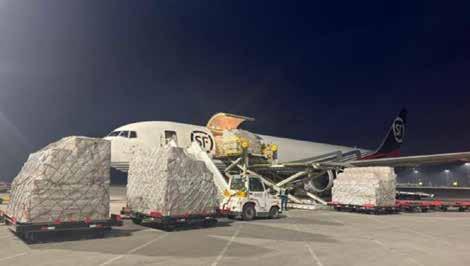
growth in bilateral trade between the two countries.
As the Spring Festival approaches, the timing of this new service becomes even more relevant. With it, fresh Norwegian salmon and other delicacies, such as Thai durians, are likely to arrive on Chinese tables much faster, enhancing the appeal of the festive season.
Furthermore, this development solidifies Ezhou Huahu International Airport’s position as a growing global logistics hub. Currently, the airport operates 36 international routes to 27 countries and regions across five continents, efficiently serving destinations in Europe, the United States, Asia, Africa, and the Belt and Road countries.
Finnish Member of Parliament
Tomi Immonen was escorted off a Finnair flight to Bangkok on Saturday, January 11, 2025, after the cabin crew deemed him too intoxicated to fly. The flight was delayed by an hour from Helsinki as Immonen attempted to explain to the crew that, as a former officer in the Finnish army, he posed no threat to flight safety. The departure was scheduled for 20:50 but did not take off until 21:58.
Immonen eventually suggested that the crew call the police to conduct an onboard alcohol test. However, the police removed him from the flight. On the tarmac, a breathalyzer test showed a blood alcohol level of 0.78‰.
Immonen stated that he had been persistent because he was
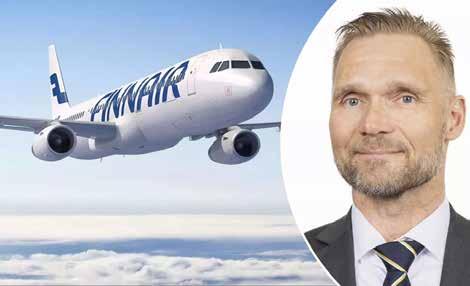
escorting another passenger who could not travel alone. He also apologized to the passengers whose vacations were delayed and to the crew for the inconvenience.
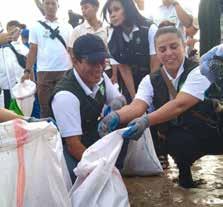
On January 19, 2025, Indonesian ministers and ambassadors, including Norway’s Rut Kruger Griven, took part in a beach cleanup at Kedonganan Beach, Bali, to combat plastic pollution.
Environment Minister Hanif Faisol Nurofiq, along with officials from tourism, marine, and fisheries ministries, participated in the initiative, which extended to Jimbaran and Kelan beaches. The cleanup attracted around 8,600 participants, including military officers, police, students, and business owners.
This follows an earlier cleanup at Kuta Beach on January 4. Despite efforts, plastic waste remains a problem in Badung District. Minister Nurofiq highlighted a dedicated team under Presidential Regulation 83/2018 to improve marine waste management.
Additionally, the government, in collaboration with the UNDP and supported by Norway and the UAE, is installing 14 trash booms in Bali’s rivers to prevent debris from reaching the sea.


